Preparing for outpatient surgery can feel overwhelming, but it doesn't have to be! Understanding the process and knowing what to expect can make a world of difference in easing your concerns. From pre-operative instructions to post-surgery care, this guide has everything you need to navigate your journey with confidence. So, let's dive in and explore the essential steps to ensure a smooth outpatient experience!
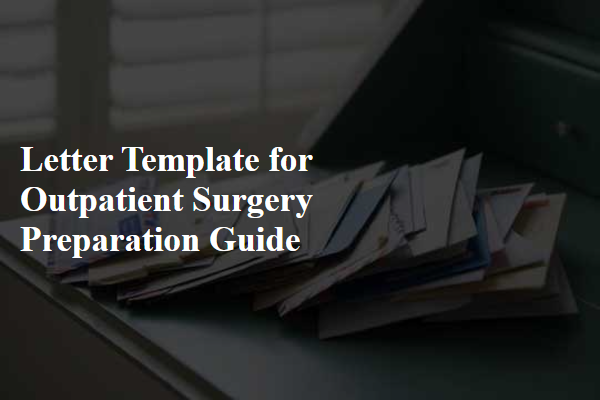
Patient Information and Contact Details
Outpatient surgery requires careful preparation and attention to patient details, ensuring a smooth process. Patients should gather personal information, including full name, date of birth, and insurance details, which may include policy numbers and provider contact information. Emergency contact names and phone numbers play an essential role, allowing healthcare providers to reach someone if necessary. Health history details, such as current medications, allergies (especially to anesthesia), and previous surgeries (noting dates and types), are crucial for the surgical team to provide safe care. Finally, understanding the location of the outpatient facility, including address and contact number, helps minimize confusion on the day of the surgery, making for a more efficient experience.
Pre-surgery Instructions and Guidelines
Outpatient surgery preparation guides are crucial for ensuring patient safety and effectiveness of the surgical procedure. Clear pre-surgery instructions outline necessary steps patients must follow prior to the day of surgery. Each patient receives personalized guidelines tailored to their specific procedure, such as arthroscopy for knee injuries or gallbladder removal surgery. Essential elements include fasting requirements, typically starting at midnight the night before surgery, which ensures an empty stomach to minimize anesthesia risks. Medications must be reviewed, particularly blood thinners which may require adjustment to prevent complications. Arrangements for post-operative transportation are imperative, as patients may experience grogginess from anesthesia. In addition, patients should prepare their recovery area at home, ensuring a comfortable setting for proper healing following outpatient procedures. It is advisable to have follow-up appointments scheduled to monitor progress and address any concerns promptly.
Medical History and Medication List
Preparing for outpatient surgery requires a thorough understanding of your medical history and current medication list. Patients should compile a comprehensive medical history, including previous surgeries, chronic conditions, and allergies. Important medications to list include prescription drugs, over-the-counter medications, and herbal supplements. This information assists healthcare professionals at surgical centers, such as the Mount Sinai Hospital in New York City, in evaluating potential risks and ensuring safe anesthesia administration. Keeping a detailed list can also help identify any interactions that may lead to complications during the surgical procedure. Patients are advised to update their medication list at least a week prior to the appointment to allow adequate time for review.
Transportation and Post-surgery Care Arrangements
Outpatient surgery preparation is crucial for a smooth recovery process. Patients must arrange reliable transportation (mandatory after sedation procedures) to and from the surgical facility, such as a local hospital or outpatient center. Designating a capable caregiver (preferably an adult family member or friend) ensures that patients receive necessary assistance upon discharge, enabling proper post-surgery care. Moreover, understanding individualized discharge instructions is imperative for effective wound management (preventing infections) and pain control (administering prescribed medications on schedule). Patients should also evaluate their home environment, ensuring it is conducive to rest and supported by easy access to essential items, thereby facilitating comfort during recovery.
Insurance and Payment Information
Outpatient surgery can involve various insurance policies, including private health insurance plans, Medicare, and Medicaid, which significantly impact patient responsibilities. Understanding copayments, deductibles, and coinsurance is crucial; for example, some plans may cover approximately 80% of surgical costs while the patient is responsible for the remaining 20%. Verification of insurance coverage prior to the procedure helps avoid unexpected financial burdens, as many outpatient surgery centers, such as those found in urban areas like Los Angeles, California, require patients to provide their insurance details beforehand. It is also essential to inquire about payment options, including financing plans that may be offered by the facility to manage expenses related to anesthesia, surgical supplies, and post-operative care. Additionally, patients should confirm potential out-of-pocket costs for pre-operative assessments, laboratory tests, and follow-up appointments, ensuring a comprehensive understanding of total expenses associated with the outpatient procedure.

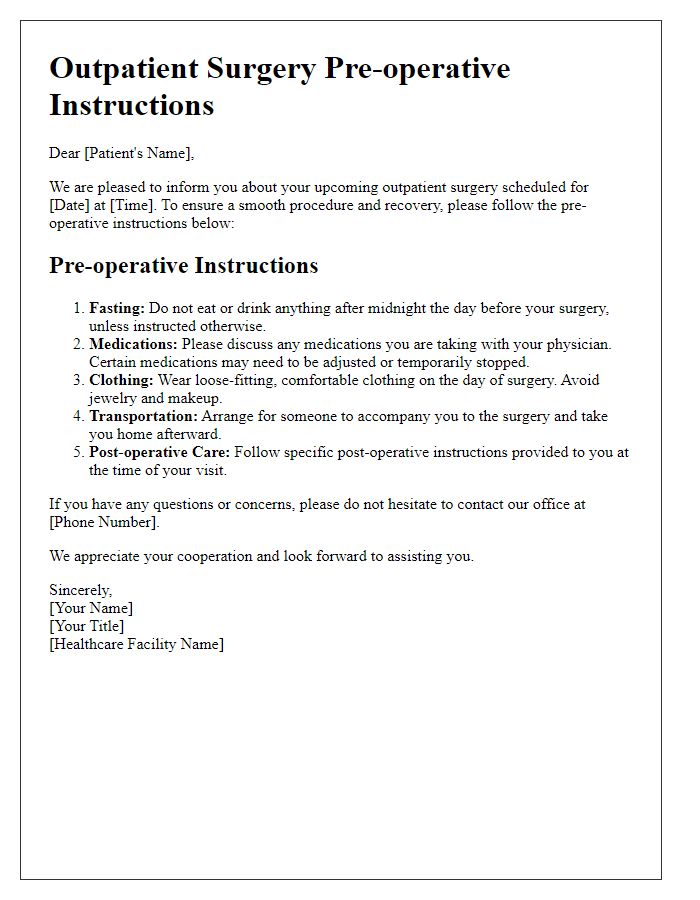
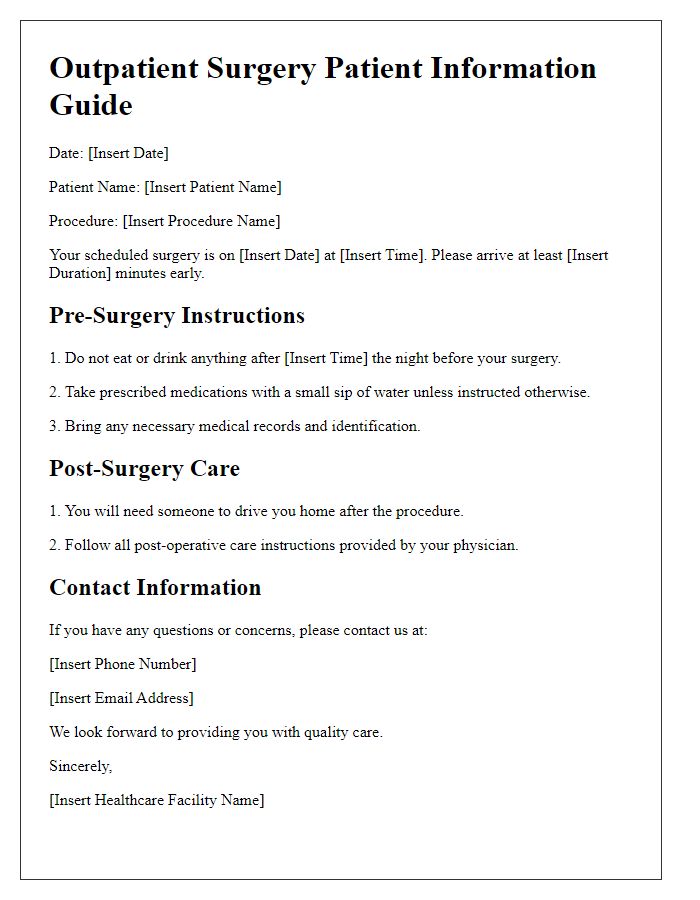
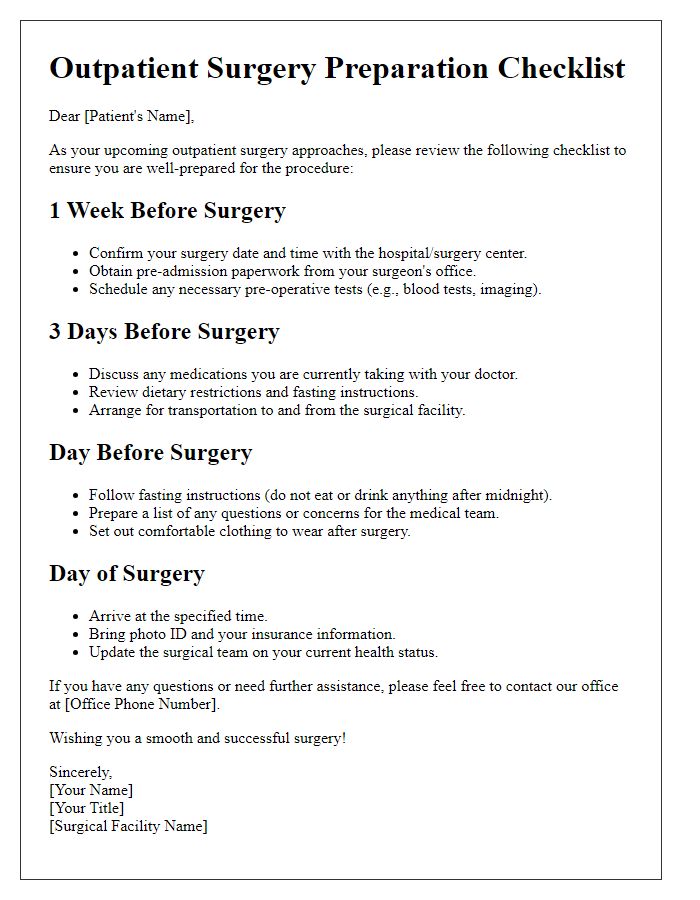
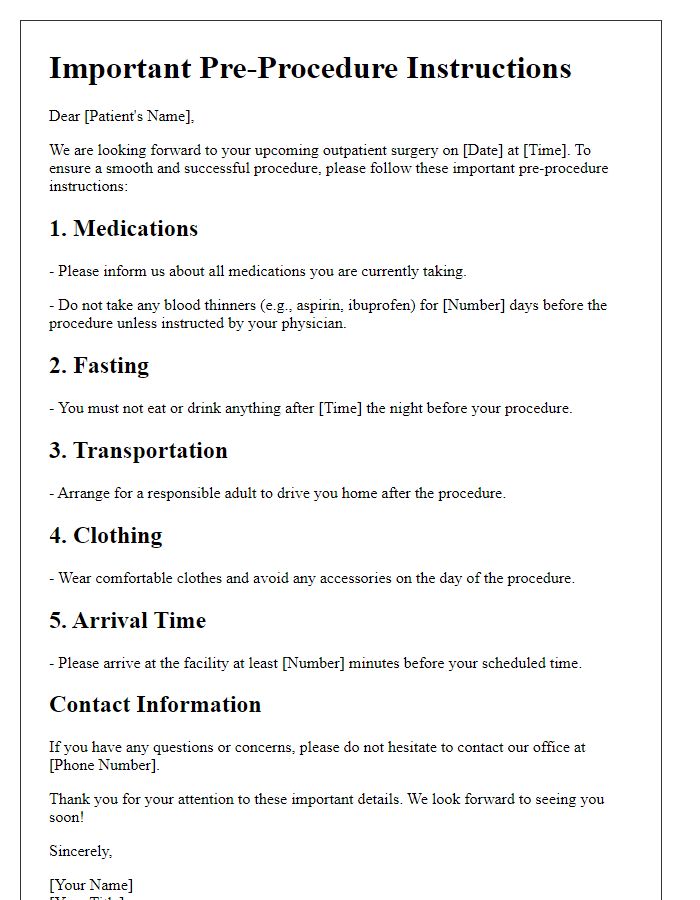
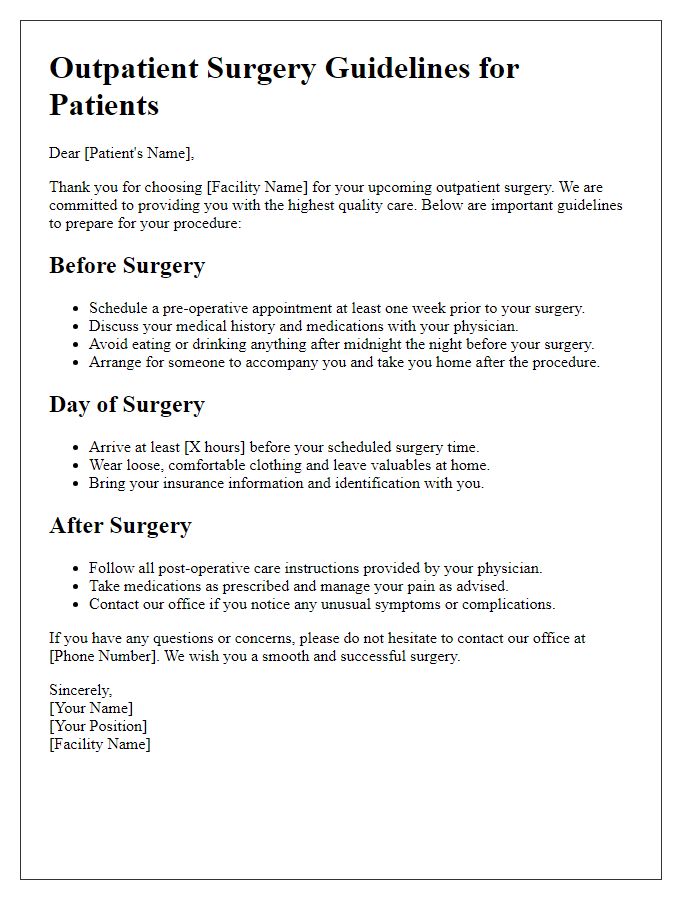
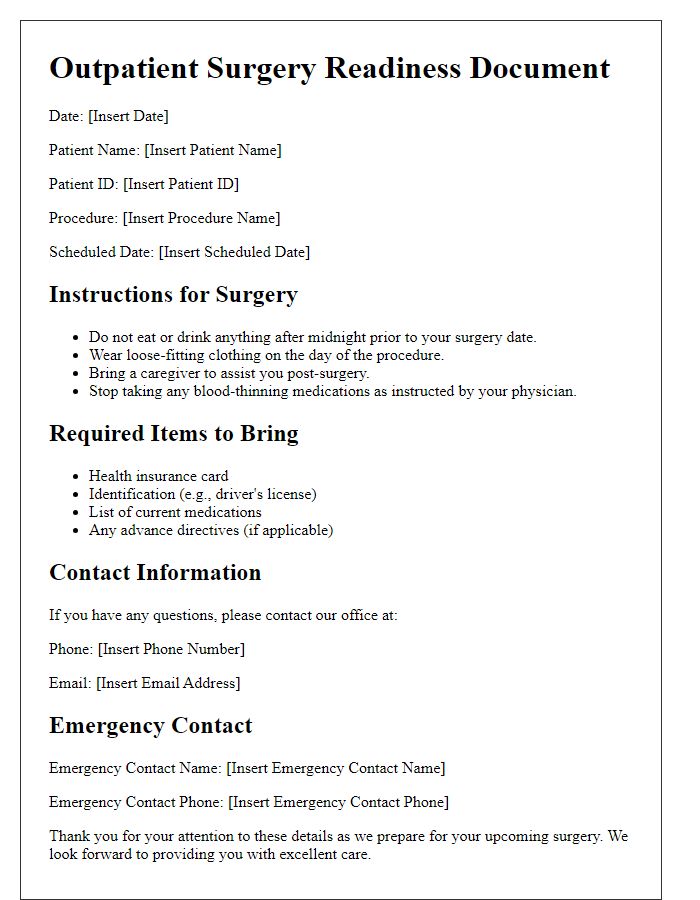
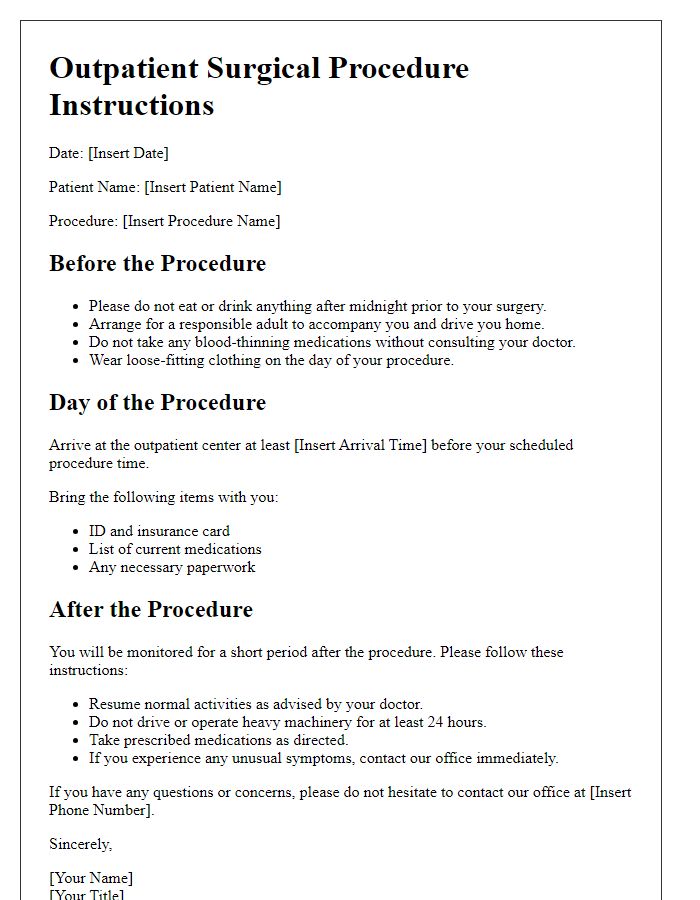
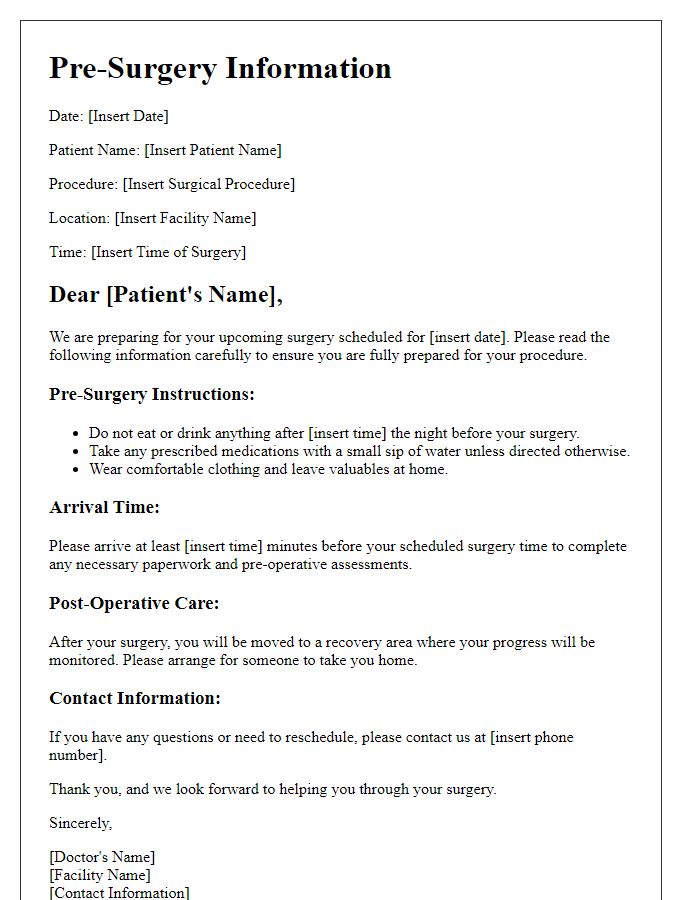
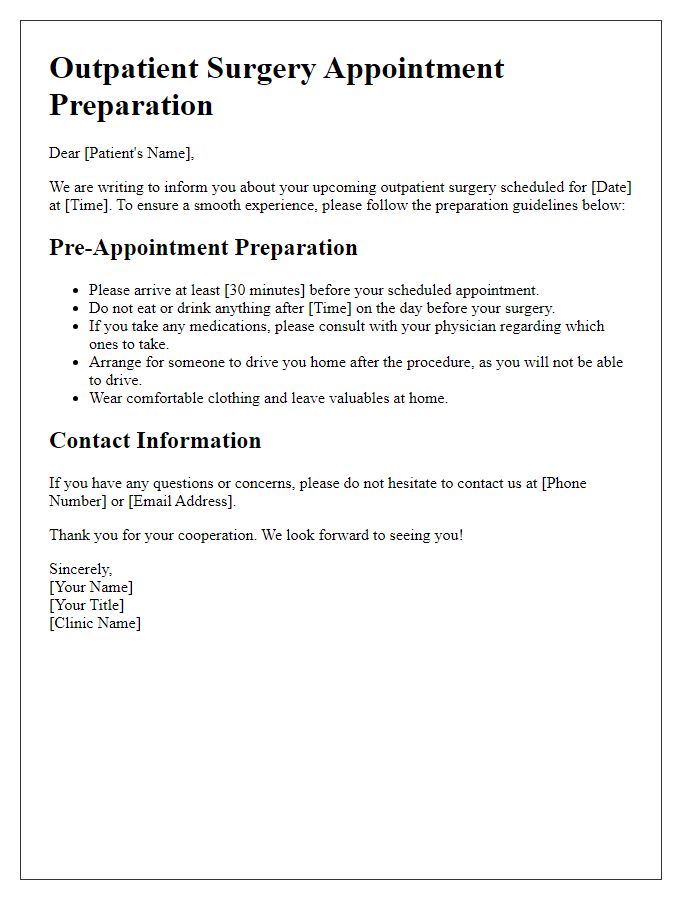
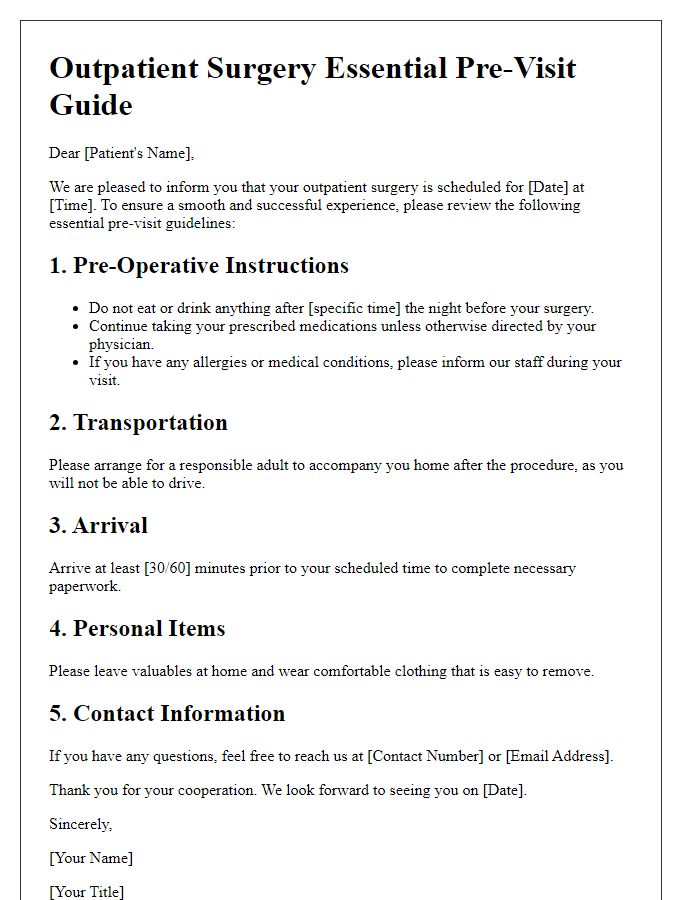


Comments